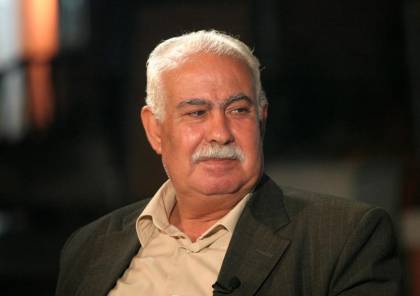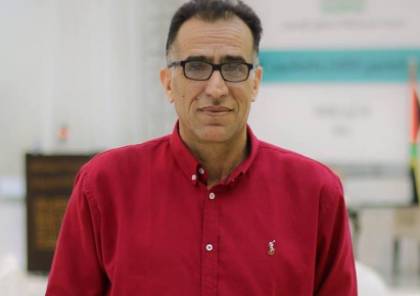Will the Arabs do it this time?
Al-Khamisa News Network - Gaza

Author: Talal Awkal
After three or four Arab and Islamic summits since the start of the genocidal, starvation siege on the Palestinians on 7/10/2023, attention is focused on the new summit being held in Doha today, preceded by high expectations of a significant shift in the decisions that will be taken to protect dignity, sovereignty and stability in the region.
The Israeli air attack on Doha, aimed at eliminating the Hamas negotiation delegation, seems to have surprised everyone, given that Qatar is a U.S. ally, hosts the largest Al-Udeid base in the region, is a mediator state, is distant from the Palestinian environs, and does not pursue an openly hostile policy toward the occupation.
The surprise suggests that Arabs in general, and Islamic countries in particular, did not fully read Israel’s objectives, which go beyond Palestine to the whole Middle East, or that they did not take those objectives seriously.
More than that, Gulf states and regional countries allied with the United States, or those labeled “moderate” — whether they appease it or fear confronting it — have built their expectations and policies on a deep confidence that the U.S. will strongly uphold its commitments to protect its Arab allies with whom it has signed security and defense agreements.
Despite strikes on Aramco oil facilities in Saudi Arabia without the United States doing anything to protect them or punish those responsible, the Arabs have not changed their policies.
The Arabs have not learned the lessons of history that confirm Palestine is the key to war and peace in the Middle East, and that no matter what they do, they will not be able to escape the impact of the Palestinian and Arab–Israeli conflict on the security and stability of their regimes.
Despite Benjamin Netanyahu’s maps of the “new Middle East” and “Greater Israel,” nothing has changed: trust in the United States remains entrenched, intra-Arab conflicts are worsening, and each state seeks its own salvation alone. After Qatar, Syria, Lebanon, Yemen, Tunisia, Iraq, and Palestine all the time, in addition to Iran, Netanyahu returns and threatens aggression against any country that hosts resistance leaders.
Meir Masri, a political analyst known in the occupying state, issued direct threats that Turkey is next. The Likud-affiliated Speaker of the Knesset openly warned the complacent that the strike targeting Doha was a message to the entire Middle East.
Would the occupying state have dared to bomb Doha, home to the largest U.S. military base, without prior approval or at least assurance of U.S. cover?
It is likely that Trump’s tweets following the attack on Qatar contained more regret at failing to achieve his objectives than sorrow over striking an allied country. If the United States was not aware of and agreeable to the attack, and if it opposed such a treacherous strike that Trump said harmed his country’s and Israel’s interests, then why were Qatar’s radars, air defenses, and other abundant defensive weapons disabled or blinded?
After the attack, the U.S. administration rushed to contain the Qatari situation and to preempt the Arab and Islamic summit with a series of statements and promises that such an attack would not be repeated and that America would stand by its commitments to protect Gulf security, so the summit would not raise the bar on expected stances and measures.
The Arabs, especially the Gulf Arabs, failed to believe that the immediate danger to their security and stability did not originate from any other state, but from the occupying state, which poses that threat and aggression to the entire Middle East, including the “moderates” and those who consider themselves U.S. allies.
“There is immunity for no one in the region,” Netanyahu says and acts accordingly toward the International Criminal Court: after nearly two years of genocidal war and starvation on the Gaza Strip, and a campaign of settlement, repression, destruction and weakening of the Palestinian Authority in the West Bank and Jerusalem, he is convinced that the Arabs are not prepared to take any practical positions or policies that could deter his colonial entity.
The Arabs may not yet have realized that they are being targeted, and that they will be consumed after they allowed the white bull to be devoured.
The Israeli attack on Qatar and threats to continue the aggression have left the Arabs fearful and tense, but they will most likely once again seek protection from the United States, paying higher prices for that protection.
As usual, Netanyahu lies when he says “getting rid of Hamas leaders resident in Qatar will remove the main obstacle to freeing all the hostages and ending the war in Gaza,” and this justification does not conceal his insistence on continuing wars in the region.
The occupying state will not stop its barbaric war on Gaza except by displacing and uprooting its population or the majority of it — a matter agreed with the U.S. administration — and it will likely expand its aggression into the West Bank after the UN General Assembly’s decision to recognize the State of Palestine.
It is very important to note that the General Assembly vote, by an overwhelming majority of 142 votes to 10 against, reflects the isolation of the U.S.–Israel axis.
Of the countries that opposed the vote, only five are significant: the United States, the occupying state, Hungary, Paraguay and Argentina, while the other five opposing states are barely known to most people.
Once and for all, the Arab-Islamic summit should move beyond rhetoric of condemnation, denunciation and ineffective resolutions, and beyond calling on others to do what they themselves must do, so that people can believe Arabs have decided and are able to rely on themselves to protect themselves and to defend their dignity, interests and the stability of their peoples. Will they do it this time?



